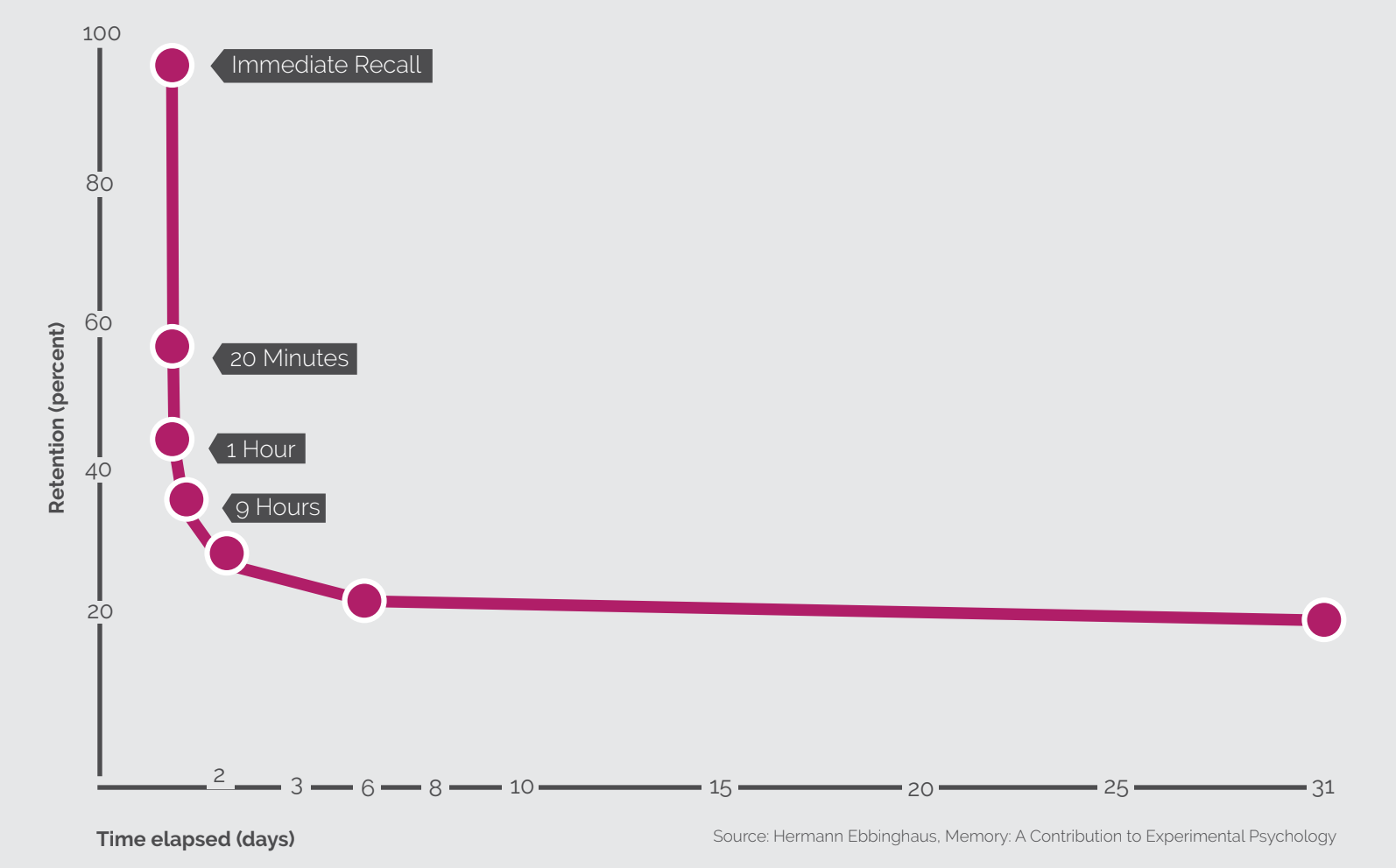Did you know that within a week of reading this blog post, you’ll only remember 20% of the content?
You’ve probably heard of the learning curve. The idea that new skills or knowledge can be quickly acquired initially, but that learning becomes slower over time.
The learning curve was first described by Hermann Ebbinghaus back in 1885. However, it wasn’t his only insight into how the human mind works. Ebbinghaus also looked at how we remember and retain information.
The forgetting curve hypothesises the decline of memory retention in time. If no attempt is made to retain information, in 20 minutes you’ll remember just 60% of what you’ve learned. In an hour you’ll remember less than 50% and after 6 days, just 20%.

When you think about this in a leadership training context, the implications are staggering.
If you send your leaders off on a training workshop, unless they have an opportunity to recite or practice what they’ve learned then one week later they’ll only remember 20%.
Even by the time they step back in the workplace the next day, they’ll have forgotten over half of what they’ve learned.
Think about the last training course you went on. How much of it do you remember?
In a traditional workshop, you’ll increase your knowledge. You’ll learn some key insights and be excited to implement the 5-10 new learnings into your toolkit once you get back to work. Though as pumped as you are to make a change, you won’t be able to pull all of these new techniques into action.
After a week or two you might remember the concept but not how to implement the idea. Even with the best will in the world you’ll be lucky if you retain even two of the ten key points from the workshop.
Cramming all the key learnings into a one or two day workshop makes logistical sense, but as the forgetting curve demonstrates, it greatly restricts learning retention.
Leadership training at any level is aimed at giving leaders new skills - at helping them change their behaviours in order to develop into a collaborative leader. One that makes things happen, with the ability to lead transformation and attract loyal followers.
The problem is, simply learning what to do over the course of one or two days doesn’t lead to people behaving differently in the long-term.
So what to do about it?
Ebbinghaus realised that every time you reinforce what you’ve learned, the rate of decline reduces. He also realised that people retain information better when they are actively involved rather than when they’re just passive observers.
So if people have opportunities to go back over the key points from the workshop and to put their new skills into practice, then they’ll have a much better chance of retaining what they’ve learned. Which means a much better chance of embedding those new behaviours in the long-term.
This is why leadership development workshops can’t exist in a vacuum. Training shouldn’t end once the session is over. We need to encourage people to put what they’ve learned into practice back in the workplace. We need to support them as they try out these new behaviours, with goal setting and regular feedback.
Over the last few years, t-three have developed a unique blended learning approach that takes all this into account.
By combining face to face learning with online training and real-world challenges, along with regular nudges through our blended learning platform, individuals are continually supported to practice and embed new behaviours.
If you’re looking to shake up your current approach to leadership development and drive real behaviour change, get in touch to find out how we could help.
How would you like to start a conversation? Click on the icons below, or use our interactive video tool.